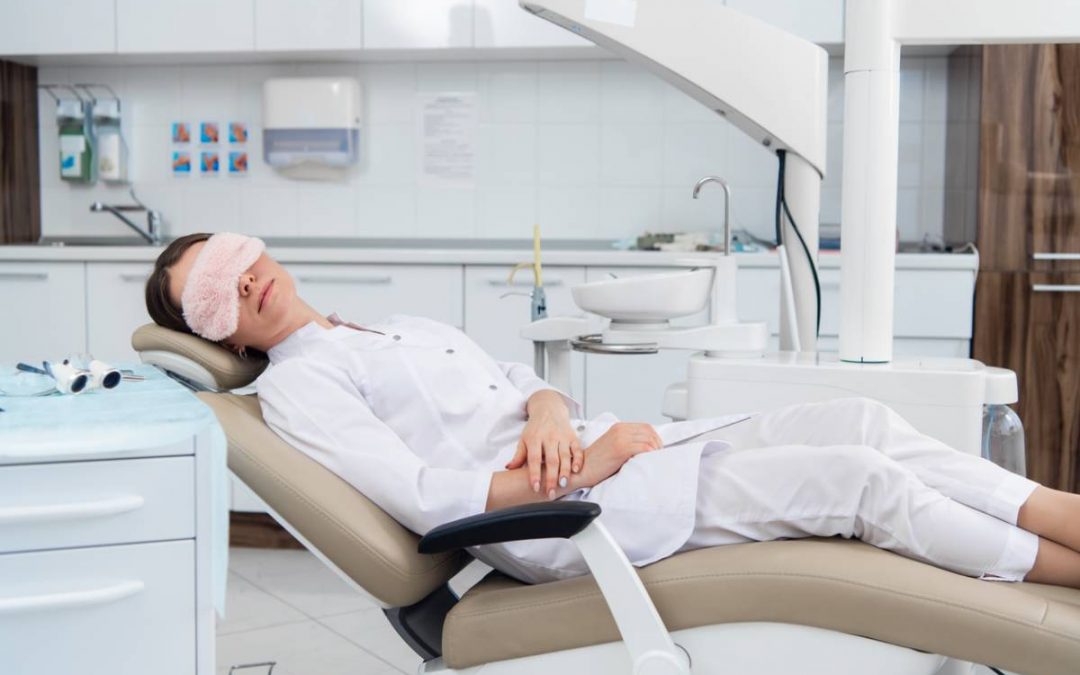There are many different types of dental procedures where sedation comes in handy for lessening the painful impacts of some of the elements of dental procedures. Despite the common usage of dental sedation tools, the process is shrouded in fear and suspicion oftentimes. Below, we cover 5 myths about dental sedation.
However, clearing these myths up opens up the path to helping patients prepare for deeper levels of dental treatment that can help their teeth look and feel their very best. It can only serve to have the highest level of understanding possible regarding your procedure.
5 Myths About Dental Sedation
If you have a dental procedure that has sedation as part of the treatment plan, take a look at this guide that describes some of the common myths surrounding sedation dentistry.
1. Dental Sedation Is Dangerous
There is a common belief that dental sedation is somewhat dangerous. However, under most normal circumstances, this isn’t true at all. Many patients receive dental sedation without undergoing any side effects at all.
All types of medicine that you ingest incur some type of risk. Having your sedation administered by a very experienced and trained dentist is the most certain way to ensure that you won’t encounter any serious problems during the administration of your sedation and the procedure it accompanies.
2. Sedation Is Only Safe for Adults
This is another erroneous myth about dental sedation. Children can be administered dental sedation in completely safe ways. The same goes for teenagers and adults. One’s medical history is a much stronger indicator of the relative safety of administering dental sedation than how old someone is.
One’s medical history can help to determine what exact type of sedation they will go through, as there are several different types available. You’ll be able to discuss the ins and outs of this with your dentist prior to treatment.
3. There is Only One Type of Sedation
In fact, there are several different types of sedation. The one that is most commonly thought of is general anesthesia. However, this is not the only type of dental sedation that is available for patients. There are four primary types of sedation that are commonly used in dentistry. They are as follows:
- Nitrous oxide
- Oral conscious sedation
- General anesthesia
- IV sedation
General anesthesia is actually the least most common out of any of these procedures due to the fact that it is the riskiest and the type that can most heavily impact the patient after the procedure. Determining what type of sedation will be the most beneficial for you will be gone over with your dentist prior to your treatment. Much will have to do with the exact nature of the procedure you’re receiving.
4. Anyone Can Receive Sedation
Many dental patients are, in fact, not good candidates for dental sedation. This is due to the fact that many patients have medical conditions that can interfere with the administration of general anesthesia.
In addition, the presence of strong allergies or other medical elements can interfere with the administration of general anesthesia. Women who are pregnant or breastfeeding will also find themselves having to take extra care when dabbling in things like general anesthesia. Being upfront with your dentist about the kinds of issues you personally are facing can help avoid any surprise challenges down the line.
5. Sedation is Only Good for Invasive Procedures
It’s true that sedation is commonly administered during intensive invasive procedures of various stripes. However, these are not the only types of procedures where sedation is applied. In fact, most patients can qualify to be sedated for whatever type of procedure they’re about to take on.
This includes a variety of treatments. Even if it’s not a physical problem, and you’re just experiencing an emotional problem such as dental anxiety, you will likely be able to request some type of dental sedation in order to calm your anxiety.
In general, dentists are quite willing to administer this type of treatment in order to keep patients calm and tranquil during the various types of dental procedures that they are administering. This has the potential to make both the dentist and the patient much calmer and happier during their procedure, and will reduce stress in the long run.
The Best Dentist in Beverly Hills
Maz Endodontics is the most trusted dentist in Beverly Hills for addressing the various dental needs of discerning patients in Southern California. If you’re interested in receiving quality dental care and would like to know what would benefit you, contact our emergency endodontist today in order to schedule an appointment.

